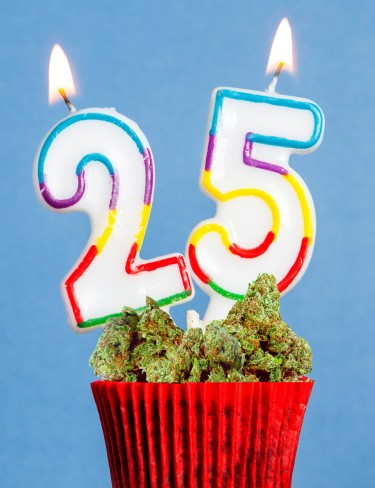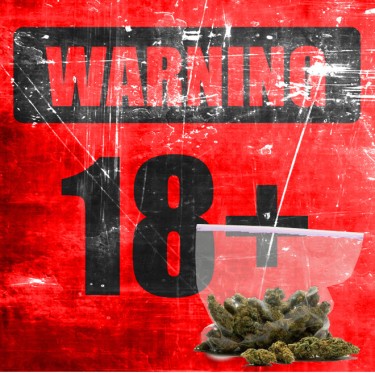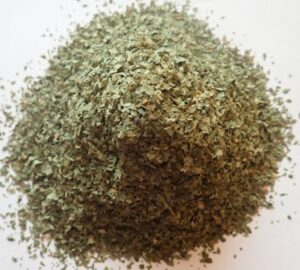
In 1996, California made history by becoming the first state to legalize medical marijuana. Since then, 40 states and the District of Columbia have followed suit, legalizing the medicinal use of cannabis. Moreover, 24 states and the District of Columbia have gone a step further, allowing recreational or adult use of cannabis, although four of them are yet to establish commercial retail markets. Similar to alcohol regulations, the minimum age for cannabis use in all these instances is set at 21.
However, in Washington, there is a proposed bill aiming to increase the minimum legal sale age for cannabis products with over 35% THC concentration to 25 years. The bill, known as House Bill 2320, focuses on "high-THC cannabis products" and was introduced to the Washington state House Committee on Regulated Substances and Gaming by Representatives Lauren Davis (D-Shoreline) and Tom Dent (R-Moses Lake) on January 11, with a public hearing scheduled for January 16. The proponents argue that products with high THC content pose both physical and mental risks that demand attention. Additionally, the proposed legislation includes exemptions for qualified patients and designated medical providers.
Assessing the Risks of High-THC Cannabis Products
Davis remarked, "Currently, there is no legal restraint on the potency of THC, the psychoactive component in cannabis concentrates. Cannabis vape oils, dabs, and shatter are commonly available with a THC potency reaching nearly 100%—a tenfold increase in strength since cannabis legalization in 2012. These concentrated products are distinct and pose significant risks," according to KOIN 06.
Dent stated, "The landscape of the cannabis industry has undergone substantial changes since its legalization. This legislation is essential to navigate the dynamic market and implement measures to safeguard both cannabis users and our youth."
As outlined by Cannabis Business Times, back in November 2012, Washington, alongside Colorado, was the pioneering state to legalize cannabis for adult use. Commencing sales in 2014, both states allowed the sale of adult-use cannabis to individuals aged 21 and older. Subsequently, 18 additional states have embraced similar legalization measures. However, if the proposed bill is ratified, the minimum age for cannabis sales will increase to 25. Advocates for cannabis legalization in the U.S. argue for harmonizing the age limit with that of alcohol sales. Conversely, lawmakers in certain state governments, adhering to more conservative perspectives, have proposed elevating the cannabis age limit to 25 years, citing the ongoing development of the human brain up to that age as justification.
While the brain concludes its growth in size during early adolescence, its development and maturation persist until the mid-to-late 20s. The prefrontal cortex, situated behind the forehead, is one of the last areas to undergo full maturation, influencing vital skills like planning, prioritization, and decision-making. Although there is evidence suggesting that cannabis can impact the developing teenage brain, advocating for delaying its use until adulthood, the proposed bill to elevate the permissible age for cannabis use from 21 to 25 appears somewhat impractical. This is because, when observing human behaviour and the limited efficacy of current prohibition measures, or even comparing it to the drinking age, the bill seems unlikely to have a substantial impact other than further restricting legal markets.
Scientific Basis and Criticisms of Proposed Cannabis Age Increase
The bill's proponents contend that their rationale is supported by the research conducted by scientists from Washington State University and the University of Washington, relying on a November 2020 report titled "Cannabis Concentration and Health Risks."
According to the report, "The use of cannabis with high THC concentration increases the likelihood of developing cannabis use disorder or addiction, especially among adolescents," as stated by the university researchers. They further highlight that "Daily cannabis use, particularly with high-potency products, heightens the risk of developing a psychotic disorder, such as schizophrenia, and is associated with an earlier onset of symptoms compared to individuals who do not use cannabis."
Although the bill incorporates such language, David and Dent omitted the detail that this evidence specifically addresses the effects of THC on individuals aged 14 to 19, not the target demographic of adults aged 21 to 25, who would be impacted by the bill if enacted.
Furthermore, the bill proposes that Washington's Department of Health establish voluntary training programs for retail cannabis staff to educate them on potential health and safety impacts. Additionally, it mandates the University of Washington's Addictions, Drug & Alcohol Institute (ADAI) to implement guidelines for healthcare providers and patients identified as "at risk of severe complications from cannabis use."
Critics argue that this initiative represents another costly and bureaucratic misuse of taxpayer funds, manipulating scientific findings that could otherwise serve practical purposes.
Examining the Potential Impact on Cannabis Market Dynamics and Legalization Advocacy
The proposal to raise the legal cannabis age to 25 in Washington has triggered a nuanced conversation about its potential effects on the cannabis market and broader legalization advocacy. Advocates for the bill contend that it represents a proactive measure to address the rising potency of THC in cannabis products, particularly those with concentrations exceeding 35%. Proponents argue that this targeted approach is essential to mitigate potential health risks associated with high-THC products, echoing concerns about addiction and mental health issues. However, critics raise questions about the practicality of such legislation, expressing concerns that it might inadvertently contribute to a more complex regulatory landscape without substantially impacting cannabis usage patterns.
Additionally, the proposed bill sparks discussions on aligning cannabis regulations with those governing alcohol. While proponents advocate for consistency in age limits, critics argue that cannabis and alcohol affect individuals differently, warranting a nuanced approach to their regulation. The ongoing discourse reflects the challenges in finding a balanced regulatory framework that safeguards public health without stifling the cannabis industry's growth. As the bill undergoes scrutiny and a public hearing, stakeholders continue to explore its potential implications, considering both the immediate impact on the cannabis market and the broader implications for the evolving landscape of cannabis legalization in the United States.
Bottom Line
The proposed bill in Washington, aiming to elevate the legal cannabis age to 25, has initiated a contentious discussion, blending concerns over public health, industry repercussions, and the broader context of cannabis legalization. While advocates stress the importance of addressing the perceived risks linked to high-THC products, skeptics question the practicality of the legislation and its potential impact on an already intricate regulatory framework. The ongoing discourse explores parallels with alcohol regulations, underscoring the nuanced considerations in aligning age limits for substances with distinct effects. As the legislative process unfolds, stakeholders face the challenge of striking a balance that ensures public welfare without impeding the growth of the evolving cannabis industry. The examination of scientific evidence, potential market dynamics, and the broader implications for legalization advocacy paints a complex picture, prompting a thorough evaluation of the proposed measures and their real-world implications.
AGE REQUIREMENTS ON CANNABIS, READ ON...
CAN YOU BUY WEED IF YOU ARE 18 IN AMERICA? CHECK THE GUIDE!
- SEO Powered Content & PR Distribution. Get Amplified Today.
- PlatoData.Network Vertical Generative Ai. Empower Yourself. Access Here.
- PlatoAiStream. Web3 Intelligence. Knowledge Amplified. Access Here.
- PlatoESG. Carbon, CleanTech, Energy, Environment, Solar, Waste Management. Access Here.
- PlatoHealth. Biotech and Clinical Trials Intelligence. Access Here.
- Source: http://cannabis.net/blog/news/21-for-booze-25-for-highthc-weed-rasing-the-age-limit-to-buy-highthc-cannabis-products-to-25-ye
- :has
- :is
- :not
- $UP
- 06
- 11
- 14
- 16
- 19
- 1996
- 2012
- 2014
- 2020
- 25
- 35%
- 40
- a
- About
- According
- addiction
- Additional
- Additionally
- address
- addresses
- addressing
- adhering
- Adult
- adults
- advocacy
- advocate
- advocates
- advocating
- affect
- age
- aged
- Aiming
- Alcohol
- aligning
- All
- allowed
- Allowing
- alongside
- already
- Although
- america
- among
- an
- and
- Another
- appears
- approach
- ARE
- areas
- argue
- AS
- associated
- At
- attention
- available
- back
- Balance
- Balanced
- basis
- BE
- because
- becoming
- behaviour
- behind
- Bill
- blending
- both
- Brain
- broader
- bureaucratic
- business
- buy
- by
- CAN
- cannabis
- cannabis business
- Cannabis Industry
- cannabis products
- certain
- challenge
- challenges
- Changes
- check
- citing
- Colorado
- Columbia
- commencing
- commercial
- committee
- commonly
- compared
- comparing
- complex
- complications
- component
- Concentrated
- Concentrates
- concentration
- Concerns
- concludes
- conducted
- conservative
- considerations
- considering
- content
- context
- continue
- contribute
- Conversation
- conversely
- cortex
- costly
- could
- criticisms
- Critics
- Current
- Currently
- daily
- David
- Davis
- Decision Making
- delaying
- Demand
- demographic
- Department
- designated
- detail
- developing
- Development
- differently
- discourse
- discussion
- discussions
- disorder
- distinct
- district
- do
- drug
- during
- dynamic
- dynamics
- Earlier
- Early
- educate
- effects
- efficacy
- ELEVATE
- elevating
- embraced
- ensures
- especially
- essential
- establish
- Ether (ETH)
- evaluation
- Even
- evidence
- evolving
- examination
- explore
- explores
- expressing
- Face
- finding
- findings
- First
- focuses
- followed
- For
- four
- Framework
- from
- full
- funds
- further
- gaming
- gone
- governing
- Governments
- Growth
- guidelines
- Have
- Health
- healthcare
- hearing
- High
- Highlight
- House
- House committee
- However
- HTTPS
- human
- identified
- if
- immediate
- Impact
- impacted
- impacting
- Impacts
- implement
- implications
- importance
- in
- inadvertently
- includes
- incorporates
- Increase
- Increases
- individuals
- industry
- influencing
- initiated
- Initiative
- instances
- Institute
- intricate
- introduced
- issues
- IT
- ITS
- January
- jpg
- known
- lake
- landscape
- language
- Last
- lauren
- lawmakers
- Legal
- legalization
- legalize
- Legislation
- Legislative
- like
- likelihood
- LIMIT
- Limited
- limits
- linked
- made
- mandates
- manipulating
- marijuana
- Market
- Markets
- measure
- measures
- medical
- Medical Marijuana
- medicinal
- mental
- Mental health
- might
- minimum
- misuse
- Mitigate
- more
- Moreover
- Navigate
- nearly
- November
- nuanced
- of
- oils
- older
- on
- ONE
- ongoing
- or
- Other
- otherwise
- our
- outlined
- over
- Parallels
- particularly
- patients
- patterns
- perceived
- perspectives
- physical
- picture
- Pioneering
- planning
- plato
- Plato Data Intelligence
- PlatoData
- potency
- potential
- Practical
- prioritization
- Proactive
- process
- Products
- Programs
- Prohibition
- proposal
- proposed
- proposes
- providers
- public
- public health
- purposes
- qualified
- question
- Questions
- raise
- rationale
- reaching
- Read
- real world
- Recreational
- reflects
- regulated
- Regulation
- regulations
- regulatory
- regulatory landscape
- relying
- remarked
- repercussions
- report
- Representatives
- represents
- Requirements
- research
- researchers
- restricting
- retail
- rising
- Risk
- risks
- s
- safeguards
- Safety
- sale
- sales
- scheduled
- scientific
- scientists
- scrutiny
- seems
- serve
- set
- severe
- significant
- similar
- since
- situated
- Size
- Skeptics
- skills
- somewhat
- Sparks
- specifically
- Staff
- stakeholders
- State
- stated
- States
- Step
- strength
- stress
- Subsequently
- substantial
- substantially
- such
- Suit
- Supported
- Symptoms
- Target
- targeted
- Taxpayer
- than
- that
- THC
- The
- The Landscape
- their
- Them
- then
- There.
- These
- they
- this
- those
- times
- titled
- to
- tom
- Training
- triggered
- u.s.
- undergo
- undergoes
- undergone
- United
- United States
- university
- university of washington
- unlikely
- until
- Usage
- use
- users
- vital
- voluntary
- was
- washington
- washington state
- weed
- Welfare
- when
- while
- WHO
- will
- with
- without
- would
- years
- yet
- you
- youth
- zephyrnet













